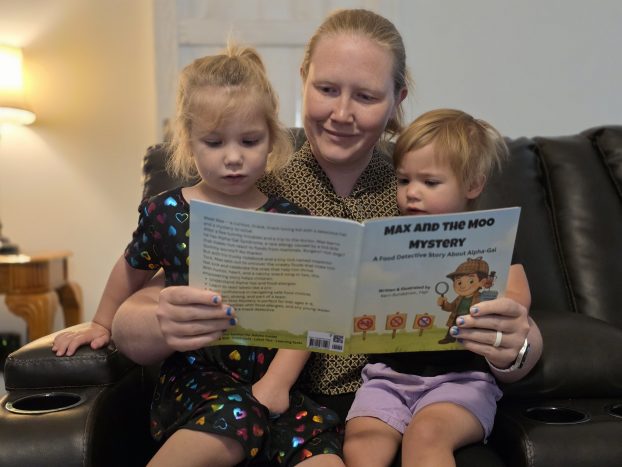Davis speaks on race, education
Published 2:11 pm Thursday, March 1, 2018

- Daryl Davis, an author and musician who has studied, and experienced firsthand the challenges and triumphs of race relations, speaks about his book and experiences with members of the Klu Klux Klan Feb. 23. (Photo by Emily Hollingsworth)
When author and musician Daryl Davis was 10 years old, he was the only black Boy Scout to participate in a march.
He said he was pulled out of the march because people started throwing objects at him. Growing up with parents who worked in the U.S. Embassy and often traveling overseas, Davis said racism was not a concept he was familiar with until his parents explained to him about racism following that incident.
Davis said at first he did not believe them.
Trending
“My parents had not lied to me, so I realized that they told me the truth,” Davis said. “But I still didn’t know why.”
“I formed a question in my mind at that age, and that question was, ‘how can you hate me when you don’t even know me?’”
Davis spoke about his journey to answer that question to an audience at Longwood University Feb. 23 and answered questions from the audience.
He said over the next 50 years, he sought the answer through writing a book about a group that sought to hate him most: the Ku Klux Klan.
The book, “Klan-destine Relationships: A Black Man’s Odyssey in the Ku Klux Klan” was published in 2005 and said it is expected to be republished this year with additional content.
He said he researched the book by meeting with Klan leaders, which often resulted in tense situations, but said the situations taught him, and the leaders, crucial lessons about the importance of communicating.
Trending
He told the story about meeting one Klan leader in Maryland, Roger Kelly, in a motel room. The leader was with a Klan bodyguard, and Davis was with his secretary.
He said the meeting grew increasingly tense, and he said he heard a noise from Kelly that he perceived as ominous.
Davis said he was ready to defend himself, and he said Kelly was also ready to retaliate when his secretary told them that the noise they were hearing was from ice melting in a bucket Davis used to cool soft drinks.
“We all began to laugh at how ignorant we all had been,” Davis said. “Yes, we’re enemies. He’s the head of the Klan and I’m a black guy. But we are sitting in the same room, at the same table, having a conversation, agreeing on some things, disagreeing on other things. But we’re not fighting, OK? This is a teaching moment.”
“Ignorance breeds fear,” Davis said. “If you don’t put a cap on that fear, if you don’t keep that fear in check, that fear will then breed hatred. If you don’t put a cap on that hatred, that hatred will breed destruction.”
He said he and Kelly met frequently after that. Kelly even invited Davis to Klan rallies. Davis said as a result of that friendship, Kelly eventually left the Klan and gave Davis his robes.
Davis brought the robes to the stage during the event.
Davis said Kelly and 200 other members he knew through the process of writing the book, left the Klan, many citing their friendship with Davis as the reason.
He cited communication as crucial to combat hate, more so since the Unite the Right rally in Charlottesville in August 2017, which claimed the life of 32-year-old Heather Heyer.
“It culminated in destruction when a white supremacist got inside his car and tried to kill, murder as many protesters as he could,” Davis said. “If you want to solve this problem, stop addressing the symptoms. Start addressing the source. The source is ignorance. If you address and fix the source, fix the ignorance, then you won’t have the fear, or the hatred, or the destruction.”





